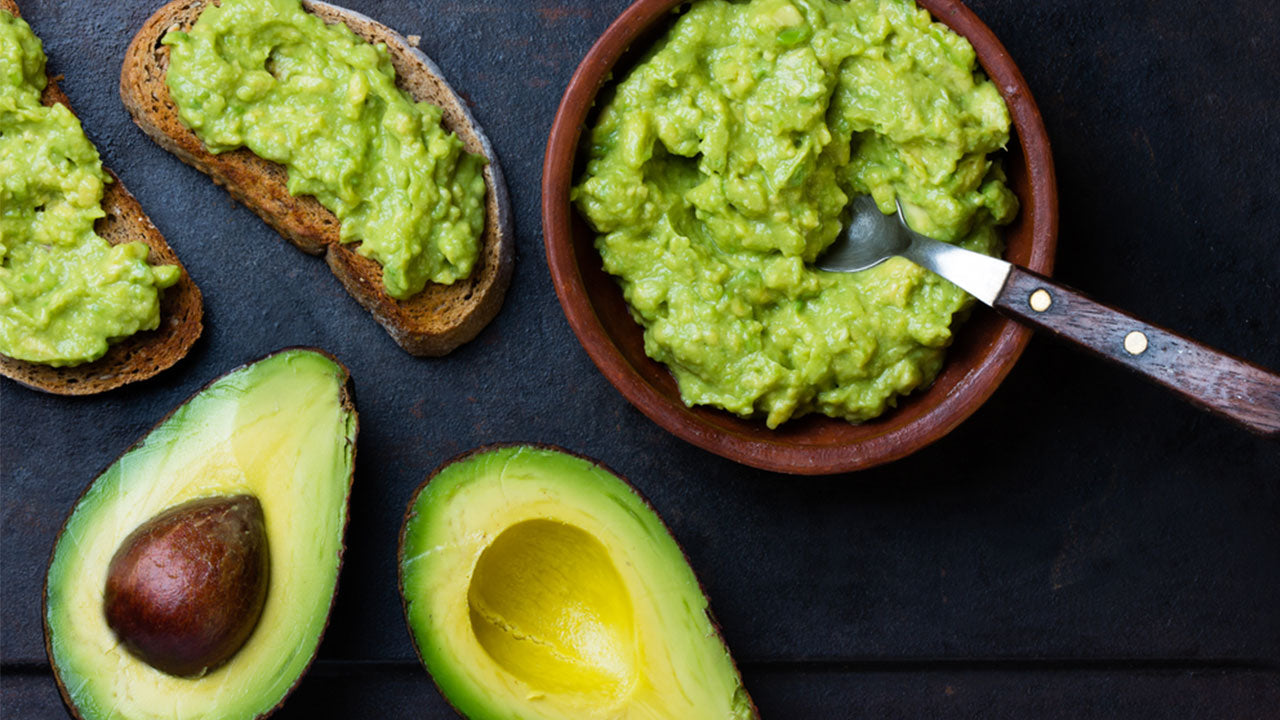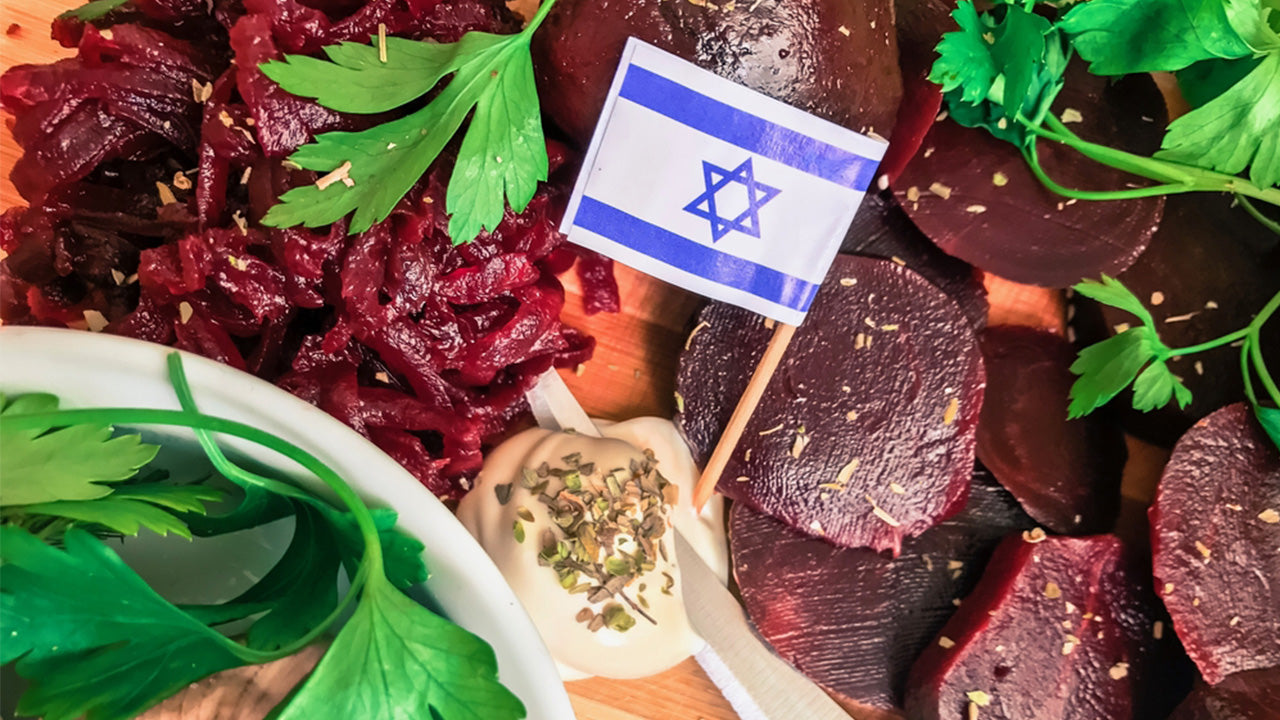Do Avocados Have Protein?
 By: by Amino Science
By: by Amino Science

It's true: plant-based foods, including vegetables and fruits, contain protein. A vegetable with any more than 2 grams of protein is actually considered a high-protein vegetable, though they'll always score lower than beans, just as beans score lower than meats. Of course, regardless of how an avocado is prepared or how green it can be, the avocado is actually a fruit, with a seed at its center. In fact, more specifically it's classified as a single-seeded berry. So the short answer to the question, "Do avocados have protein?" is... yes! Avocados do contain protein, and to find out how much, which other fruits have protein, and how you can eat more avocados creatively, read on.
Fruits Containing Protein
The best dietary sources of protein will always be meat, followed by some beans, legumes, and dairy. For example, excellent sources of protein are chicken, turkey, fish and other seafoods, lentils, cottage cheese, and eggs. Other good sources of protein are nuts, nut butters, seeds, milk, green peas, and edamame, but it's a sharp fall after that.
To be considered a good source of protein, a food should contain over 6 grams of protein, so none of the following fruits contains a significant amount of protein, but that doesn't mean they don't contain some protein for your body to use. Here are fruits high in protein, with how much content they have listed in grams per cup, from high to low.
- Guavas: 4.2 grams of protein per cup (165 g)
- Avocados: 4 grams of protein per avocado (201 g)
- Apricots: 2.2 grams of protein per cup (155 g)
- Kiwifruit: 2.1 grams of protein per cup (180 g)
- Blackberries: 2 grams of protein per cup (144 g)
- Oranges: 1.7 grams of protein per cup (180 g)
- Bananas: 1.3 grams of protein per cup sliced (118 g)
- Cantaloupe: 1.5 grams of protein per cup (177 g)
- Raspberries: 1.5 grams of protein per cup (123 g)
- Peaches: 1.4 grams of protein per cup (154 g)
So, while protein is easily found in animal-based foods, plant-based foods including fruits can provide it as well. Making sure there is a variety of food in your diet and establishing a balanced and healthy eating routine ensures that you're more likely to get your daily recommended vitamins and minerals. As far as fruits, avocado is only barely beaten by guava in protein content, so it's not to be counted out.

Do Avocados Have Protein That's Good for You?
Avocados were originally called ahuakatl in the Aztec's Nahuatl language, a word that meant testicle, referring to the food's shape. American farmers in California later chose "avocado" to better market the fruit, but only after the original marketing idea of calling it an "alligator pear" didn't catch on.
Avocados are best known for their healthy fat reputation, but are they healthy in other aspects? Well, it might be interesting to find out that avocados contain a fungicidal toxin that is not injurious or harmful to humans but is potentially poisonous to most animals. Basically, don't feed any avocado or guacamole to horses, cows, goats, sheep, pigs, rabbits, birds, or fish.
So we humans can eat avocados, but should we, especially for its protein content?
Well, we've established that fruits and veggies don't have a huge amount of protein, and so don't work so well as a protein replacement.
However, protein does provide amino acids important for building both muscle and body tissue. Along with helping to maintain tissue health, the protein gained from avocados also serves to boost your immune system. Not only that, eating avocados helps you feel more full when you pair your avocado protein intake with other high-protein foods. You'll appreciate increased satiety and satisfaction that curbs your appetite, which can help with weight loss if that's your aim. With the protein in avocados, you have plenty of health benefits to gain and nothing to lose.
What Else Is in Avocados?
Besides healthy fats and protein, avocados also contain iron, zinc, potassium, and vitamin E.
Of the two types of avocados that are abundant in the United States (those being Florida and California-grown avocados), the California avocados have darker skin and are richer in taste than the bright green-skinned Florida variety, which have a milder taste. While both have the same amount of valuable fats, the Florida variety is lower in both protein and carbohydrates (which may be a plus or a minus depending on your dietary needs).
The Carbs in Avocados
The energy in avocados primarily comes from their fat content, but avocados do have a fair helping of carbs, specifically about 3 grams of carbohydrates in a 1-ounce serving of California avocados, while it's closer to 2 grams of carbs in Florida ones. The small amount of sugar in avocados, which is a simple carb, is also slightly higher in California avocados, but nevertheless for both varieties the amount is still less than 1 gram per serving.
The Fiber from Avocados
The above carb content is largely derived from the dietary fiber that avocados have, which is another beneficial contribution from this food. Fiber keeps your digestive system working comfortably, and has been shown to help fight cardiovascular disease. One serving of either kind of avocado produced in the United States offers 2 grams of fiber, which in the body also helps to control blood sugar levels and lower cholesterol levels.
What Science Says About Avocados
The health benefits of avocados have been an area of interest for nutrition researchers. A survey published in Nutrition Journal stated that consuming avocados is associated with a better quality diet and nutrient intake, as well as lower metabolic syndrome in adults in the United States. They also advised that dietitians consider recommending avocado consumption to their patients and clients.
A study on Hass avocados (which originate from California) found that avocado oil helps promote healthy blood lipid profiles and enhances the bioavailability of the fat soluble vitamins obtained from other fruits and vegetables. Researchers highlighted that clinical studies show avocado consumption is associated with cardiovascular health, healthy aging, and proper weight management.
Avocado health benefits work on the inside and the outside. The avocado can be used as a natural cosmetic due to its rapid skin penetration and superior quality as a natural sunscreen. It turns out, the avocado is one of the healthiest things you can put in and on your body.
Ways to Include Avocado in Your Diet
Avocados feature very prominently in vegan and vegetarian diets, where any amount of extra protein is always welcome to help make up for the loss of protein gained from animal meats. If you're only using avocados in guacamole, you are missing out on a world of new opportunities, especially if you or someone you know needs to make a new and healthier change in their diet from processed food to natural whole foods.
Its creamy texture makes it perfect for a healthy smoothie full of spinach and protein powder. You can also use avocados to make vegan ice cream, cookies, truffles, creme brûlée, or chocolate and peanut butter pudding. If you're creating a diet that helps someone with diabetes stay off sugary snacks, avocado-based desserts could be a great way to give them a sweet treat without doing them any harm.
You could mash up a fresh avocado and use it as a spread to replace butter (it's buttery in taste anyway!). Want to make green eggs and ham? Take that healthy avocado mash and combine it with your eggs before scrambling them, and not only do you get a fun color, but you also get a much denser, more balanced breakfast with heightened flavor and texture.
Pro Protein, Pro Avocado
Now that you know avocados are protein packed, consider all the creative ways you can make the avocado a more regular part of your diet if you want to gain all those healthy benefits. Surprise yourself and your loved ones!
Want to make it even easier to get the amino acids avocado provides? All you have to do is add a scoop of Amino Co to water, or make an amino-acid-packed avocado smoothie!

Up to 25% off Amino
Shop NowTAGS: food
Join the Community
Comments (0)
Most Craveable Recipes




 833-264-6620
833-264-6620



















